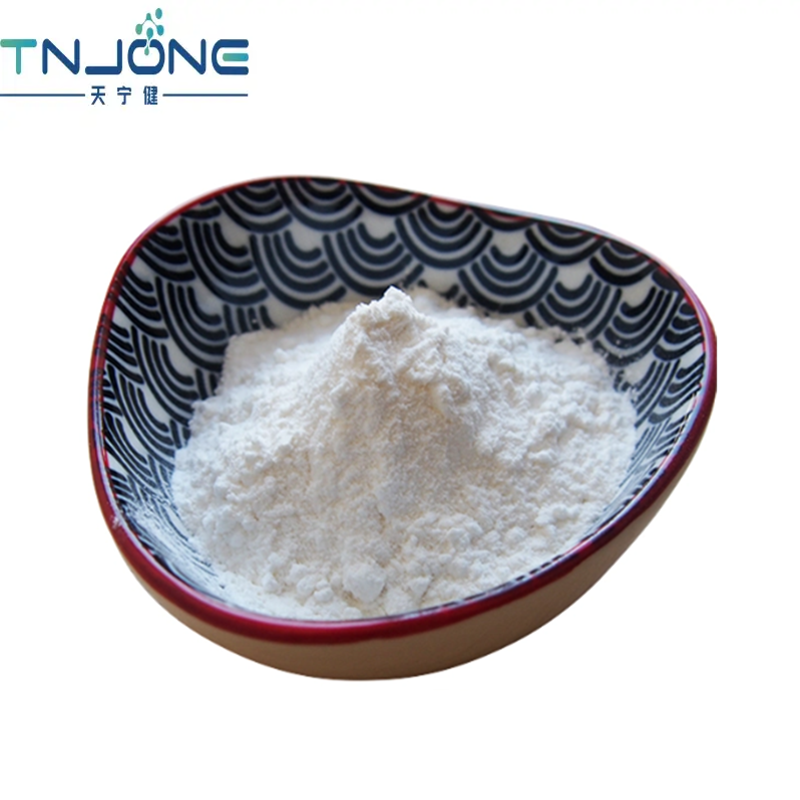Improve plant photolysing efficiency to meet the challenges of food security in the face of global warming
-
Last Update: 2021-03-07
-
Source: Internet
-
Author: User
Search more information of high quality chemicals, good prices and reliable suppliers, visit
www.echemi.com
SHANGHAI, April 21 (Xinhua) -- The latest research results of Guo Fangqing Research Group, China's
Molecular Plant Science Innovation Center and National Key Laboratory of Plant Molecular Genetics, were published online on the 21st in the international well-known journal of plant biology. The study created a completely new pathway for the synthesis of D1 proteins in amoeba, tobacco and rice, driven by high-temperature response promoter nucleus fusion gene expression, and established a "two-way" mechanism for the synthesis of plant cells' D1 proteins (natural leafy and created nuclear pathways). It is reported that increasing the synthesis pathway of D1 of cell nuclei significantly enhances the high temperature resistance, photochemical efficiency, carbon dioxide assification rate, biomass and yield of plant cells, and this original innovative discovery has important theoretical significance and application value from the point of view of adding a new D1 synthesis pathway to plant cells and significantly improving the efficiency of light energy utilization.
temperature is one of the main factors affecting plant growth cycle and geographical distribution. With the aggravation of the greenhouse effect, the high temperature stress caused by global warming is becoming a serious challenge to the modern agricultural production system, and also poses a serious threat to world food security.
the aeroserials in plant cells are the main places for photochemic use, abundant sunlight (high light strength) or high temperature stress usually causes reactive oxygen accumulation in the yelorosphere, inhibiting the photochrosial process, the main reason is to cause the "perch" on the sac membrane of the aeroserial cystic complex PSII key protein D1 rapid degradation, leaf photogasing function decreased, resulting in severe crop reduction. How to improve the repair efficiency of PSII under bright light conditions or high temperature stress, and thus enhance the photolysaling efficiency of plants, biomass and yield are the basic scientific problems and challenging problems that have long plagued scientists in this field.
Guo Fangqing group of scientific research team, think D1 may be PSII, the "barrel" of the shortest "board", supplement D1 is likely to improve the efficiency of plant photoplate key points. The team's research confirms that the demand for D1 in plants under normal growth and high temperature stress is high, and that the natural serum D1 synthesis pathway does not meet the demand for newly synthesized D1 proteins due to rapid plant growth and resistance to high temperature stress. The discovery breaks with scientists' understanding of the restrictive function of D1 proteins in photocodescing and is an important breakthrough in improving the efficiency of plant light energy utilization, helping to address the challenges of food security production under global warming conditions caused by the greenhouse effect.
this work has been supported by projects such as China
Pilot Project (Category B), the Ministry of Science and Technology's National Key Research and Development Program and the National Natural Science Foundation
Society.
This article is an English version of an article which is originally in the Chinese language on echemi.com and is provided for information purposes only.
This website makes no representation or warranty of any kind, either expressed or implied, as to the accuracy, completeness ownership or reliability of
the article or any translations thereof. If you have any concerns or complaints relating to the article, please send an email, providing a detailed
description of the concern or complaint, to
service@echemi.com. A staff member will contact you within 5 working days. Once verified, infringing content
will be removed immediately.







